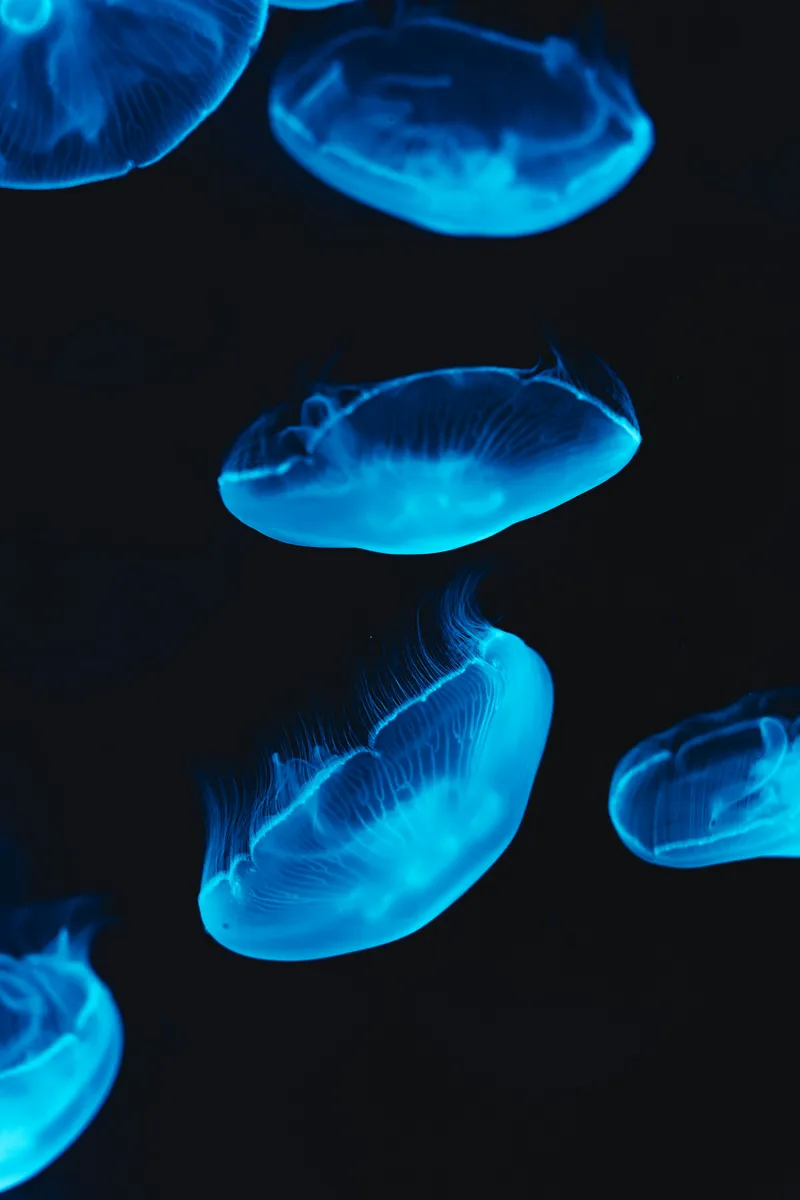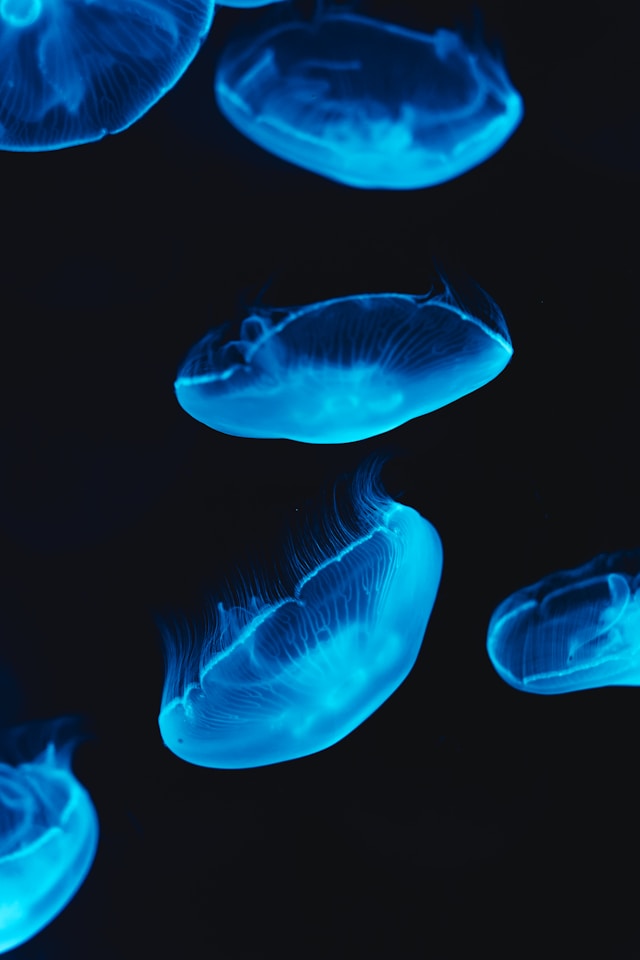Ballistic Moments of Weightlessness
On purpose and its temporary suspension
Marco Giancotti,

Marco Giancotti,
Cover image:
Photo by Willian Justen de Vasconcellos, Unsplash
It feels like we have to work hard to earn joy, yet it seems elusive, like trying to catch a fish darting among coral reefs. We try harder, and usually fail harder. We try less, and blame ourselves for not having tried harder. Sometimes, though, we get it for free. Perhaps it has nothing to do with trying.
Some of us sit high up in glossy skyscrapers, others have to listen to angry customers in tiny suburban shops. Some give erudite talks to crowds, and some hammer metal scraps all day. There are those who struggle trying to eat less, and those whose hands shake from hunger. We are lonely and we are together. No two people live identical lives, none face the same combinations of problems. Eight billion minds, every day, live eight billion unique days. Yet, without exception, our minds are all doing the same thing as everyone else: chasing one purpose after the other.
Few claim to possess a supreme purpose guiding them like a North Star throughout their lifetimes. The ones who do may structure their lives like histories, each decision and smaller goal tethered in one way or another to that ultimate purpose. The majority, those who—by confusion, choice, or doubt—do not have such grand existential plans, focus on more down-to-earth goals like careers, families, and the fulfillment of their duties. The fundamental activity of each of us, though, is always to pursue an endless sequence of goals, linked in a vast webbed hierarchy of interconnected purposes that extends beyond what any of us can fathom. We are goal-seeking beings, our minds purpose-chasing organs.
The university student stands up to put her shoes on not as an ultimate end, but because she wants to leave the house; she wants to leave the house not because that is enough for her, but because she wants to go to campus; she wants to go there in order to take a class; taking a class is itself both a goal and a means for the larger goal of finishing the year's studies, itself a means to eventually graduate, itself a means to find a good job, itself a means of doing many other things that she doesn't fully understand or even imagine yet. Those things, in turn, are likely to be stepstone goals to even further goals, albeit gradually vaguer and more mysterious as she tries to trace them with her mind. But no matter, because all she has to do now is to stand up.
Some people insist that the ultimate goal, or at least the most central of all discernible goals, is to become happy. We talk of the pursuit of happiness as the worthiest of enterprises—unassailable and self-evidently necessary. The state of happiness is the X on the map, it is the bright light at the end of a dark and inhospitable tunnel that oppresses us at all times.
This view of happiness as a higher goal leads to some perplexing questions. A goal is a state that doesn't exist yet, which we have to work to realize. People are known to sometimes "reach" happiness, but it never seems to last very long. It is not too rare to lose something soon after you have obtained it, but an objective that you have to pursue over and over again from scratch is a strange one indeed. Constantly-moving goalposts are not what we typically call meaningful goals.
There is also the question of reliability. A goal is good only insofar as you can draft a plan that will make it happen with a certain level of confidence. Yet the Happiness purpose seems to elude all formulas. Even the precise steps that allowed one to reach the blissful state once, will, more often than not, fail on following replications. Being very rich or powerful doesn't guarantee constant joy, and even very poor and oppressed people can experience bliss at times. Often happiness comes to you when it is least expected: it finds you, rather than the other way around.
Being happy is, in fact, not a goal but the freedom from goals. It is made of the brief ballistic moments of weightlessness in which you realize that you need nothing more. It happens when you stop trying or, more accurately, when you know that, for a little while, you are free to stop trying. You're allowed to stay still where you are, or to keep doing the same thing you were doing before, without immediately training your aim at the next step in a plan. Happiness is when you sense that no goal can take precedence over the current situation: you can just breathe, and rest your weary purpose-chasing organ. You're aware of having enough, even if only for the duration of a sunset walk, and having enough is the opposite of having a purpose.
What does one have to do to get it, then? A nonsensical question. Happiness occurs when you're seeking other goals. It is a moment of stasis, but an interstitial one that always implies movement before and after it—which is why it never lasts long. Asking for otherwise would be like wishing for every step of a long journey to be on the peak of a mountain. It would be like asking for death.
What one can do, however, is learn to notice and relish those moments when they happen. Chances are, they are far more frequent than one realizes. Everyone around teaches us to be incessantly on a hunt, flinging ourselves towards the next goal as soon as we achieve the last. We teach each other to abhor stasis, to lose not a minute: if you have spare time, the thinking goes, you have time to pursue something extra on the side. This is not bad in itself, but it is harmful when it robs you of that delicate sensitivity to your own joy. When an afternoon of happiness visits you, you must be ready to welcome it. You must stop planning, set aside your thick web of purposes, and simply exist in that moment, outside of time. Only then the subtler shades and tones of joy will become apparent. Observe those moments, notice the multifaceted effects they have on you, let them do their course. Then, when you know it is over, return to your usual work as a purposeful human being. It doesn't matter whether you engage in a lifelong vocation or a ragtag assortment of more mundane goals. You will be there when timid bliss happens again.
But treating happiness as something agnostic to any goal also frees you. It means you have permission to do the things you want to do for their own sake, instead of those that—you're told—will lead you to happiness. We are made for immersion in a sea of purposes, and that pursuit is our natural state. But it isn't the only thing we live on. ●
Cover image:
Photo by Willian Justen de Vasconcellos, Unsplash
